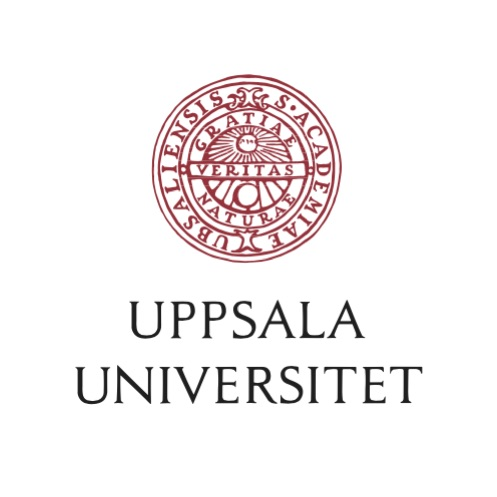A new diagnostic tool for the early detection of type 2 diabetes
DeTecT2D aims to improve on existing diagnostic tools by developing and eventually marketing a safe, precise means to detect pre-diabetes and undiagnosed cases of type 2 diabetes (T2D). The project is also developing an AI-based algorithm to improve diagnosis of these medical conditions.
Origins
Every second individual with diabetes is not diagnosed. Early detection of T2D is essential to intervention, healthy ageing and reducing the burden on healthcare systems. OGTT, the current gold standard for diagnosis, is time consuming, costly and potentially risky for undiagnosed patients. DeTec2D partners have patented a set of biomarkers for pre-diabetes and T2D that are distinct from known diabetes risk indicators.
Team
DeTecT2D combines the efforts of leading European research centers (Deutsches Zentrum für Diabetesforschung, Helmholtz Zentrum München), five top ranked universities (Imperial College London, Uppsala Universitet, University of Cambridge, Tübingen Universität, Ludwig-Maximilians-Universität München), an innovative SME (sAnalytiCo), and a pharmaceutical company (Biocrates Life Science) with a track record of successful product launches for metabolic phenotyping.
The project
The DeTecT2D project seeks to develop and commercialise a safe and precise means for early detection of pre-diabetes and T2D. The project involves:
- development of a business model;
- evaluating an extended set of candidate biomarkers in clinical and case-control samples;
- development of algorithms for screening;
- interdisciplinary training of doctoral students.
EIT Health support helps the project to better define the necessary steps towards commercialisation. The support has facilitated engagement of several large cohorts and clinical studies from partners in Germany, Great Britain and Sweden, providing different ethnicities and age groups. This helps to significantly increase the applicability of our diagnostic assay.
Impact
The new diagnostic assay will:
- enable precise detection of pre-diabetes, allowing strategies to decrease or delay onset of T2D, and related problems, like cardiovascular diseases, and kidney and eye diseases;
- provide a safe, efficient tool to detect undiagnosed T2D;
- aid public health care systems by eliminating or postponing patients’ need for treatment of T2D and related complications;
- improve patients’ life quality and contribute to healthy ageing.
Why this is an EIT Health project
This project aligns with the EIT Health Focus Areas of:
- “Care Pathways”, because it seeks to use improved prevention to help alter the trajectory of an illness.
- “Behavioural Change”, because it is designed to facilitate prevention of the onset of T2D.
External Partners:
Members

CLC/InnoStars: UK-Ireland
Partner classification: Education, Research
Partner type: Core Partner
Imperial College London is a world leading, science-based university that develops the next generation of researchers, scientists and academics through collaboration across disciplines, harnessing science and innovation to tackle global challenges.
Imperial College London
Imperial College London, Exhibition Rd, London SW7, UK
Key Activities in Corporate Innovation
Med Tech, ICT
Key Activities in Social Innovation
Healthcare provision
Key Activities in Business Creation
Technology Transfer
Key Activities in Education
Business Schools, Entrepreneurship training, Technical faculties, Medical faculties, Healthcare professional education/training


CLC/InnoStars: UK-Ireland
Partner classification: Education, Research
Partner type: Associate Partner
Cambridge houses one of Europe's largest innovation and entrepreneurial environments, is active in health, medical research, education, technology development, NCD research and has major strengths in basic science, clinical and population research.
Key Activities in Corporate Innovation
Med Tech, ICT, Diagnostics, Imaging
Key Activities in Business Creation
Incubation, Finance & Investment, Technology Transfer, Business coaching, Testing & Validation
Key Activities in Education
Business Schools, Entrepreneurship training, Technical faculties, Medical faculties


CLC/InnoStars: Scandinavia
Partner classification: Education, Research, Tech Transfer, Clusters, Other NGOs
Partner type: Associate Partner
The first university established in the Nordic countries founded in 1477, is an international research university. Uppsala University is ranked #61 in the Academic Ranking of World Universities 2014. World-class research and high at UU benefit society and business on a global level. The University is characterized by diversity and breadth, with international frontline research at nine faculties including 40,000 students, 1,800 teachers and researchers whereof about 670 professors. Comprehensive peer reviews and university rankings consistently show that research at UU is of the highest international standard. Research, education and innovation serve as guiding concepts in connection with cooperation with the business community and society at large
Key Activities in Corporate Innovation
Pharma, Med Tech, ICT, Diagnostics, Imaging
Key Activities in Social Innovation
Healthcare provision
Key Activities in Business Creation
Incubation, Technology Transfer, Business coaching, Testing & Validation
Key Activities in Education
Business Schools, Entrepreneurship training, Technical faculties, Medical faculties, Healthcare professional education/training
